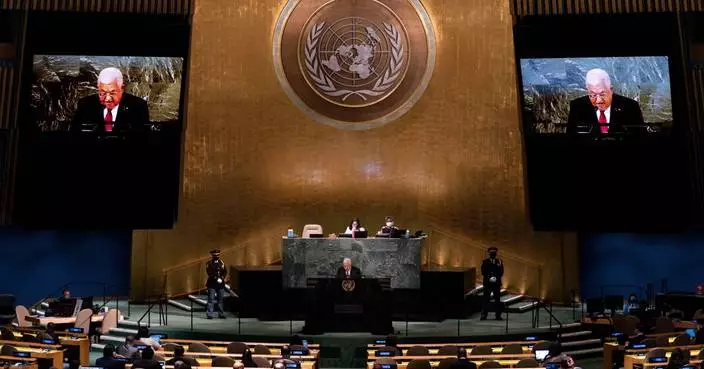U.S. industrial production fell in March, pulled down by a drop in mining output. Factory output remained weak amid a slowing global economy and trade tensions with China.
The Federal Reserve says industrial output — combining production at factories, utilities and mines — slipped 0.1% in March from the previous month.
The drop occurred amid a deceleration of the U.S. economy as stimulus from last year's tax cuts faded. Growth U.S. economic output slowed to a 2.2% annual pace the last three months of 2018 from 3.4% in the third quarter and 4.2% in the second.
Mining output declined 0.8% but was up 10.5% from March 2018.
Manufacturing production was flat after dropping in January and February. In the first three months of the year, factory output fell at an annual rate of 1.1%. Production of cars, truck and auto parts dropped 2.5% in March and 4.5% over the past year.
Utility production rose 0.2% after a sharp 3.7% increase in February.
The U.S. and China have slapped tariffs on $350 billion worth of each other's goods in a dispute over Beijing's aggressive push to challenge U.S. technological dominance. President Donald Trump also has imposed import taxes on foreign steel and aluminum and is threatening to do the same for autos.
WASHINGTON (AP) — The Biden administration has told key lawmakers it is sending a new package of more than $1 billion in arms and ammunition to Israel, three congressional aides said Tuesday.
It's the first arms shipment to Israel to be announced by the administration since it put another arms transfer — consisting of 3,500 bombs — on hold this month. The administration has said it paused that earlier transfer to keep Israel from using the bombs in its growing offensive in the crowded southern Gaza city of Rafah.
The White House has come under criticism from both sides of the political spectrum in the U.S. over its military support for Israel's now seven-month war against Hamas in Gaza. Some of President Joe Biden's fellow Democrats have pushed him to limit transfers of offensive weapons to Israel to pressure the U.S. ally to do more to protect Palestinian civilians. Many Republicans condemn any lessening of military backing to Israel.
The package being sent includes about $700 million for tank ammunition, $500 million in tactical vehicles and $60 million in mortar rounds, the congressional aides said. They spoke on condition of anonymity to discuss an arms transfer that has not yet been made public.
There was no immediate indication when the arms would be sent. It’s not clear if this shipment is part of the long-delayed foreign aid package that Congress passed and Biden signed last month, a tranche from existing arms sale or a new sale.
The Wall Street Journal first reported the plans to move the package.
House Republicans were planning this week to advance a bill to mandate the delivery of offensive weaponry for Israel. Following Biden’s move to put a pause on bomb shipments last week, Republicans have been swift in their condemnation, arguing it represents the abandonment of the closest U.S. ally in the Middle East.
The White House said Tuesday that Biden would veto the bill if it were to pass Congress. The bill also has practically no chance in the Democratic-controlled Senate. But House Democrats are somewhat divided on the issue, and roughly two dozen have signed onto a letter to the Biden administration saying they were “deeply concerned about the message” sent by pausing the bomb shipment.
One of the letter’s signers, New York Rep. Ritchie Torres, said he would likely vote for the bill, despite the White House’s opposition.
“I have a general rule of supporting pro-Israel legislation unless it includes a poison pill — like cuts to domestic policy,” he said.
In addition to the written veto threat, the White House has been in touch with various lawmakers and congressional aides about the legislation, according to an administration official.
“We strongly, strongly oppose attempts to constrain the President’s ability to deploy U.S. security assistance consistent with U.S. foreign policy and national security objectives,” White House press secretary Karine Jean-Pierre said this week, adding that the administration plans to spend “every last cent” appropriated by Congress in the national security supplemental package that was signed into law by Biden last month.
Associated Press writers Stephen Groves and Lisa Mascaro contributed.

President Joe Biden arrives to speak in the Rose Garden of the White House in Washington, Tuesday, May 14, 2024, announcing plans to impose major new tariffs on electric vehicles, semiconductors, solar equipment and medical supplies imported from China. (AP Photo/Susan Walsh)

President Joe Biden speaks at the Asian Pacific American Institute for Congressional Studies' 30th annual gala, Tuesday, May 14, 2024, in Washington. (AP Photo/Alex Brandon)











